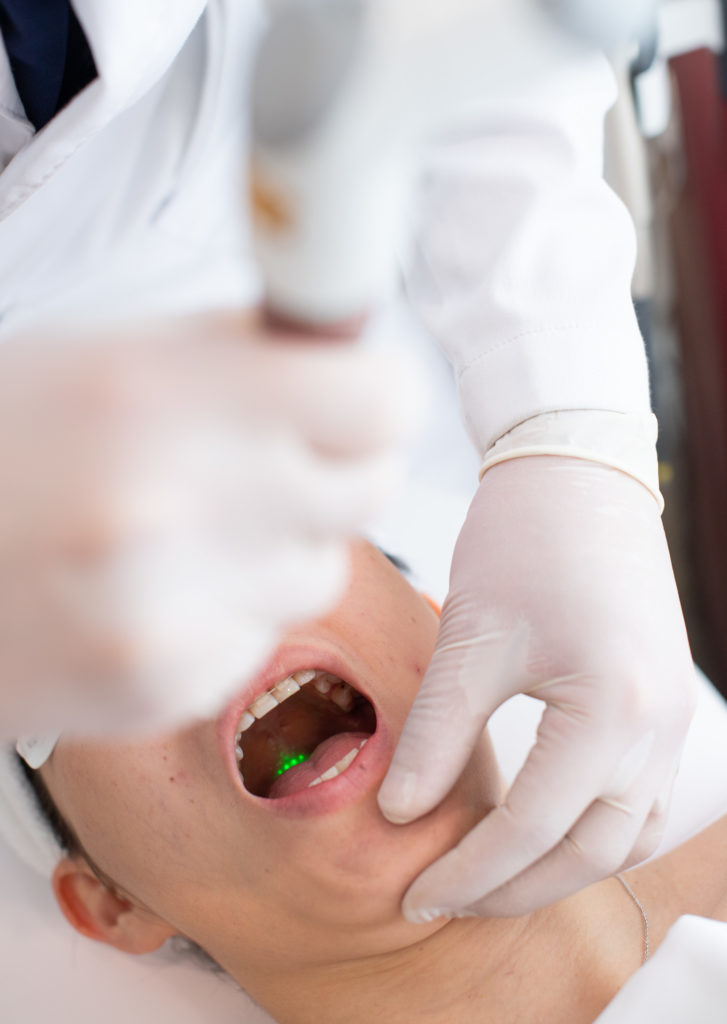SNORING THERAPHY
Stop Snoring and Improve your Sleep
NIGHTLASE is a laser treatment directed towards the throat tissues, tongue, and floor of the mouth designed to decrease snoring by addressing the cause.
The causes of snoring are easy to understand. It simply comes down to something obstructing the flow of air at the entrance of our windpipe. The resulting sound is analogous to what you hear when you let the air out of a balloon: lots of air trying to escape from a small opening.

Contributors to snoring include:
- Big, floppy tongue
- Loose throat tissues
- Swollen or blocked sinuses
- Small mouth opening
- Small, recessed lower jaw
- Smoking
- Alcohol
- Obesity
In the most extreme cases, one or a combination of these factors can lead to complete airway obstruction during sleep, a condition known as obstructive sleep apnea, which causes one to temporarily stop breathing and increases the risk of high blood pressure, stroke, heart attack, and abnormal heart rhythms e.g. atrial fibrillation.
FOTONA NIGHTLASE
FOTONA Nightlase is a unique, non-invasive procedure that uses laser energy to regenerate the collagen and elastin of the back of the throat, the tongue, and base of the mouth in order to tighten and lift these tissues away from the airway. Doing so improves the flow of air thereby decreasing the amplitude of snoring and improving the quality of sleep. Advantages of Nightlase therapy includes:
- Fast – each Nightlase session should last no more than 20 minutes
- Minimal-to-no pain
- Non-invasive
- Very safe
- Effective – 90% of patients who underwent Nightlase were satisfied with results with an average decrease in snoring amplitude of 59 +/- 20% which increased to 65 +/- 14% in patients who did not smoke and were not obese. Best of all, 90% of study patients with the most severe stage of sleep apnea experienced at least a 50% improvement in disease severity–the most improvement of any group.
Not everyone is a candidate for Nightlase. That’s why at OHMI, anyone interested in Nightlase will first undergo consultation with one of our physicians to determine whether or not Nightlase is an appropriate treatment option.

w-04-1024x724.png)